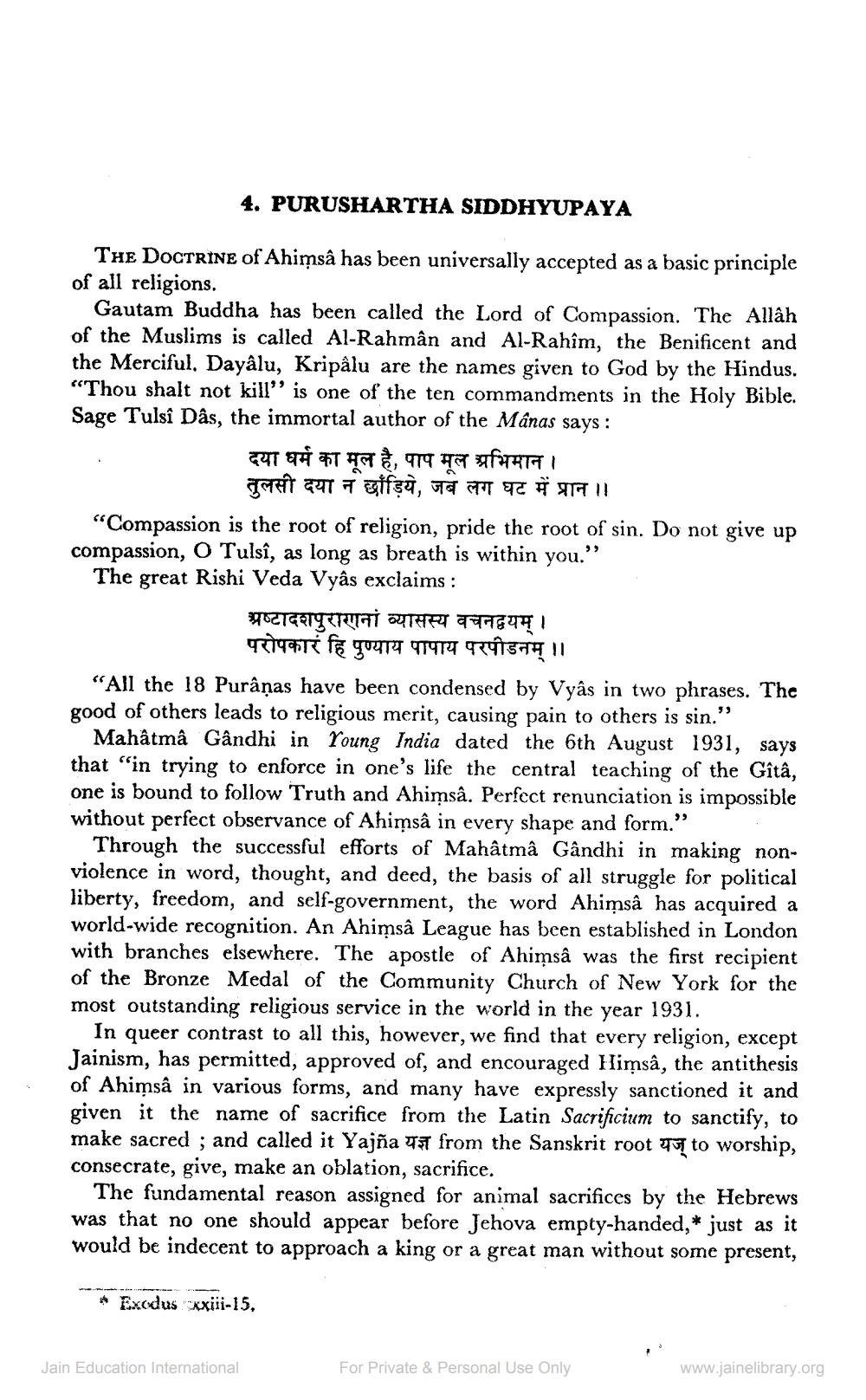________________
4. PURUSHARTHA SIDDHYUPAYA
The Doctrine of Ahimsâ has been universally accepted as a basic principle of all religions.
Gautam Buddha has been called the Lord of Compassion. The Allâh of the Muslims is called Al-Rahmân and Al-Rahîm, the Benificent and the Merciful. Dayâlu, Kripâlu are the names given to God by the Hindus. “Thou shalt not kill" is one of the ten commandments in the Holy Bible. Sage Tulsi Dâs, the immortal author of the Manas says:
दया धर्म का मूल है, पाप मूल अभिमान ।
तुलसी दया न छाँड़िये, जब लग घट में प्रान । “Compassion is the root of religion, pride the root of sin. Do not give up compassion, O Tulsî, as long as breath is within you." The great Rishi Veda Vyâs exclaims :
अष्टादशपुराणनां व्यासस्य वचनद्वयम् ।
परोपकारं हि पुण्याय पापाय परपीडनम् ।। "All the 18 Purâņas have been condensed by Vyâs in two phrases. The good of others leads to religious merit, causing pain to others is sin."
Mahatma Gandhi in Young India dated the 6th August 1931, says that "in trying to enforce in one's life the central teaching of the Gîtâ, one is bound to follow Truth and Ahimsâ. Perfect renunciation is impossible without perfect observance of Ahimsâ in every shape and form.”
Through the successful efforts of Mahâtma Gandhi in making nonviolence in word, thought, and deed, the basis of all struggle for political liberty, freedom, and self-government, the word Ahimsâ has acquired a world-wide recognition. An Ahimsa League has been established in London with branches elsewhere. The apostle of Ahimsa was the first recipient of the Bronze Medal of the Community Church of New York for the most outstanding religious service in the world in the year 1931.
In queer contrast to all this, however, we find that every religion, except Jainism, has permitted, approved of, and encouraged Himsâ, the antithesis of Ahimsa in various forms, and many have expressly sanctioned it and given it the name of sacrifice from the Latin Sacrificium to sanctify, to make sacred ; and called it Yajña 757 from the Sanskrit root 77 to worship, consecrate, give, make an oblation, sacrifice.
The fundamental reason assigned for animal sacrifices by the Hebrews was that no one should appear before Jehova empty-handed, * just as it would be indecent to approach a king or a great man without some present,
* Exodus xxiii-15,
Jain Education International
For Private & Personal Use Only
www.jainelibrary.org




